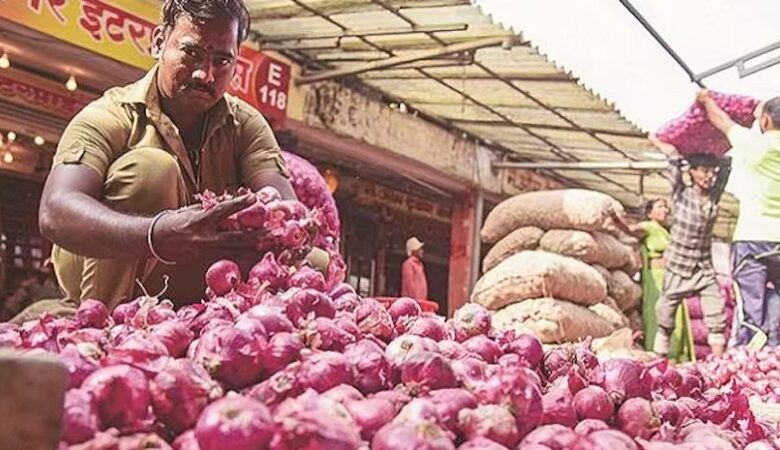Central Government Initiatives to Manage Onion Supply Chain and Export Amidst Crop Shortages

News Mania / Agnibeena Ghosh/ 29th April 2024
Amid concerns of lower onion production in the 2023-24 cropping season compared to the previous year and increasing international demand, the government has permitted the export of 99,150 metric tons (MT) of onions to six neighboring countries: Bangladesh, UAE, Bhutan, Bahrain, Mauritius, and Sri Lanka. This export allowance aims to ensure adequate domestic availability while capitalizing on export opportunities.
The National Cooperative Exports Limited (NCEL) has been designated as the exporting agency responsible for supplying onions to these countries. Onions are sourced domestically through an e-platform at the lowest prices (L1) and supplied to the nominated agencies of the destination countries at negotiated rates, with 100% advance payment. The export prices offered by NCEL are determined based on prevailing prices in destination and domestic markets, as well as international market trends. Maharashtra, the largest onion producer in India, serves as the primary supplier of onions for export through NCEL.
Furthermore, the government has allowed the export of 2,000 MT of white onions specifically cultivated for export markets in the Middle East and some European countries. These white onions, being purely export-oriented, incur higher production costs due to factors such as elevated seed expenses, adherence to good agricultural practices (GAP), and compliance with stringent maximum residue limit (MRL) requirements.
To bolster domestic buffer stocks, the government has set a procurement target of 500,000 tons of onions from the Rabi-2024 crop under the Price Stabilization Fund (PSF) managed by the Department of Consumer Affairs. Central agencies like the National Cooperative Consumers’ Federation (NCCF) and the National Agricultural Cooperative Marketing Federation of India Ltd. (NAFED) are collaborating with local agencies such as Farmer Producer Organizations (FPOs), Farmer Producer Companies (FPCs), and Primary Agricultural Credit Societies (PACs) to facilitate procurement, storage, and farmer registration processes. A high-level team comprising officials from the Department of Consumer Affairs, NCCF, and NAFED recently visited Nashik and Ahmednagar districts of Maharashtra to raise awareness among farmers and local organizations about the procurement plans.
In a bid to mitigate storage losses, the Department of Consumer Affairs has decided to increase the quantum of onions to be irradiated and cold-stored from 1,200 MT last year to over 5,000 MT this year. This initiative, undertaken with technical support from the Bhabha Atomic Research Centre (BARC) in Mumbai, aims to leverage irradiation and cold storage technologies to reduce storage losses to less than 10%. A pilot project conducted last year yielded promising results, leading to the expansion of this approach to a larger scale.
These multifaceted measures by the government underscore a concerted effort to manage onion supply chains effectively, balance domestic requirements with export opportunities, and enhance storage infrastructure to minimize post-harvest losses. By adopting a holistic approach encompassing procurement, export facilitation, and technological interventions, the government seeks to navigate challenges posed by fluctuating onion production and global market dynamics while safeguarding the interests of farmers and consumers alike.






